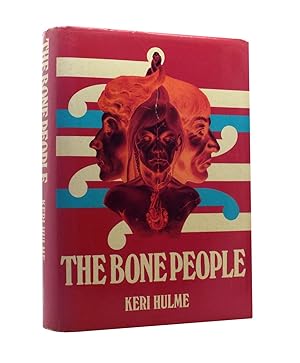

‘This is over-my-dead-body stuff for me,’ wrote Lumley of The Bone People in a letter to her fellow Booker Prize judges. While judges Marina Warner and JW Lambert, along with St John Stevas, supported The Bone People, Nina Bawden opposed the book because of its violence, as did Joanna Lumley, whose first choice was The Good Terrorist. Carr, The Good Terrorist by Doris Lessing, Lost Letters from Hav by Jan Morris and The Good Apprentice by Iris Murdoch on the 1985 shortlist. The Bone People sat alongside Illywhacker by Peter Carey, The Battle of Pollocks Crossing by J.L.

Yet it remained ‘all too disturbing’ for many, including some of that year’s other judges.

The Booker Prize jury answered St John Stevas’ question by awarding the 1985 prize to its author Keri Hulme, making her the first New Zealander to win the award. Telling the stories of artist in exile Kerewin, a speechless boy named Simon, and his foster father Joe, The Bone People is a story of love and violence that reckons with the clash between Māori and European cultures. Is it all too disturbing or is it a winner?’ The Bone People, said Norman St John Stevas in his speech as chair of the Booker Prize judges in 1985, ‘is a highly poetic book filled with striking imagery and insights… It seems to be about child battering, but is really about love.


 0 kommentar(er)
0 kommentar(er)
